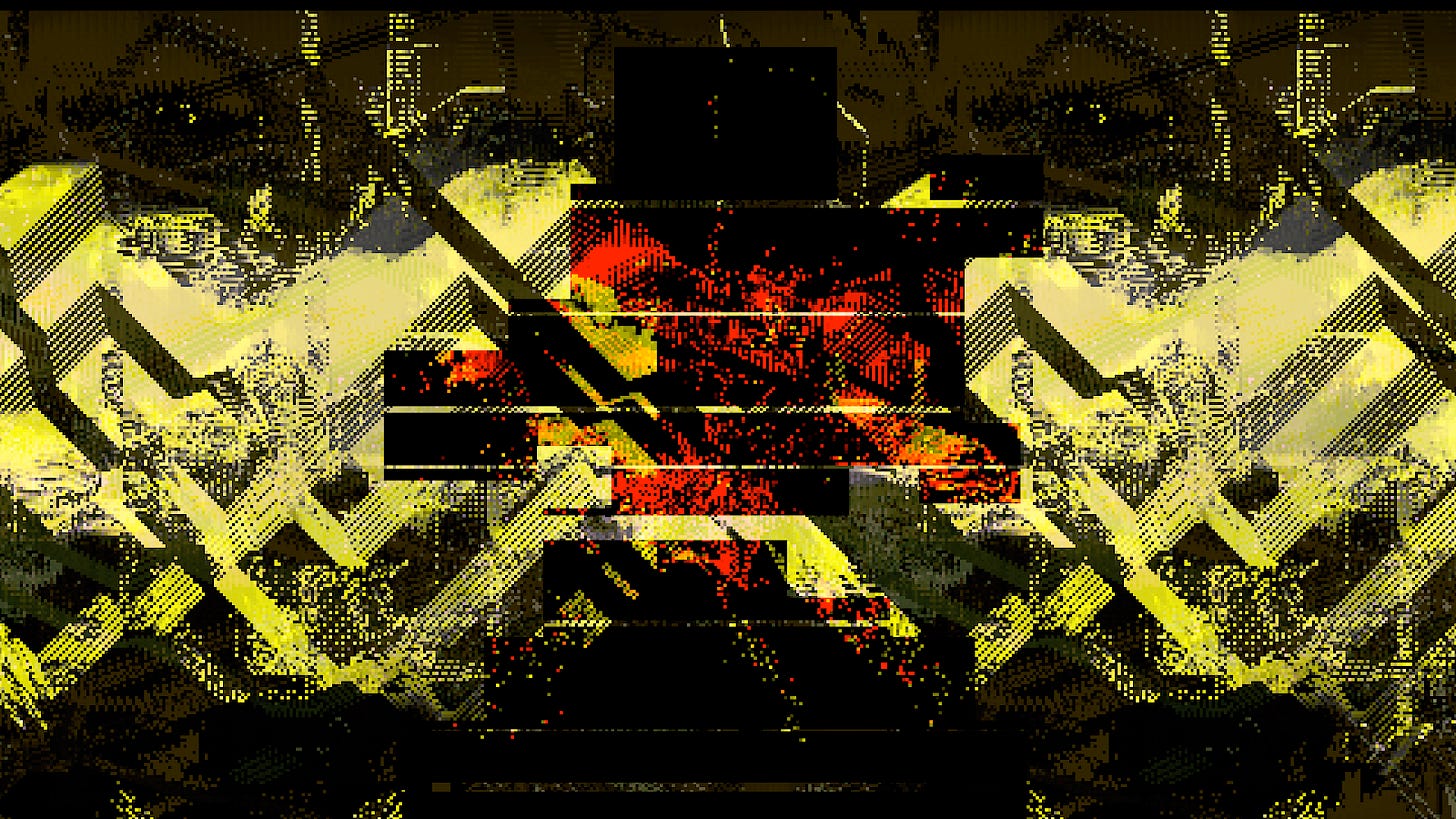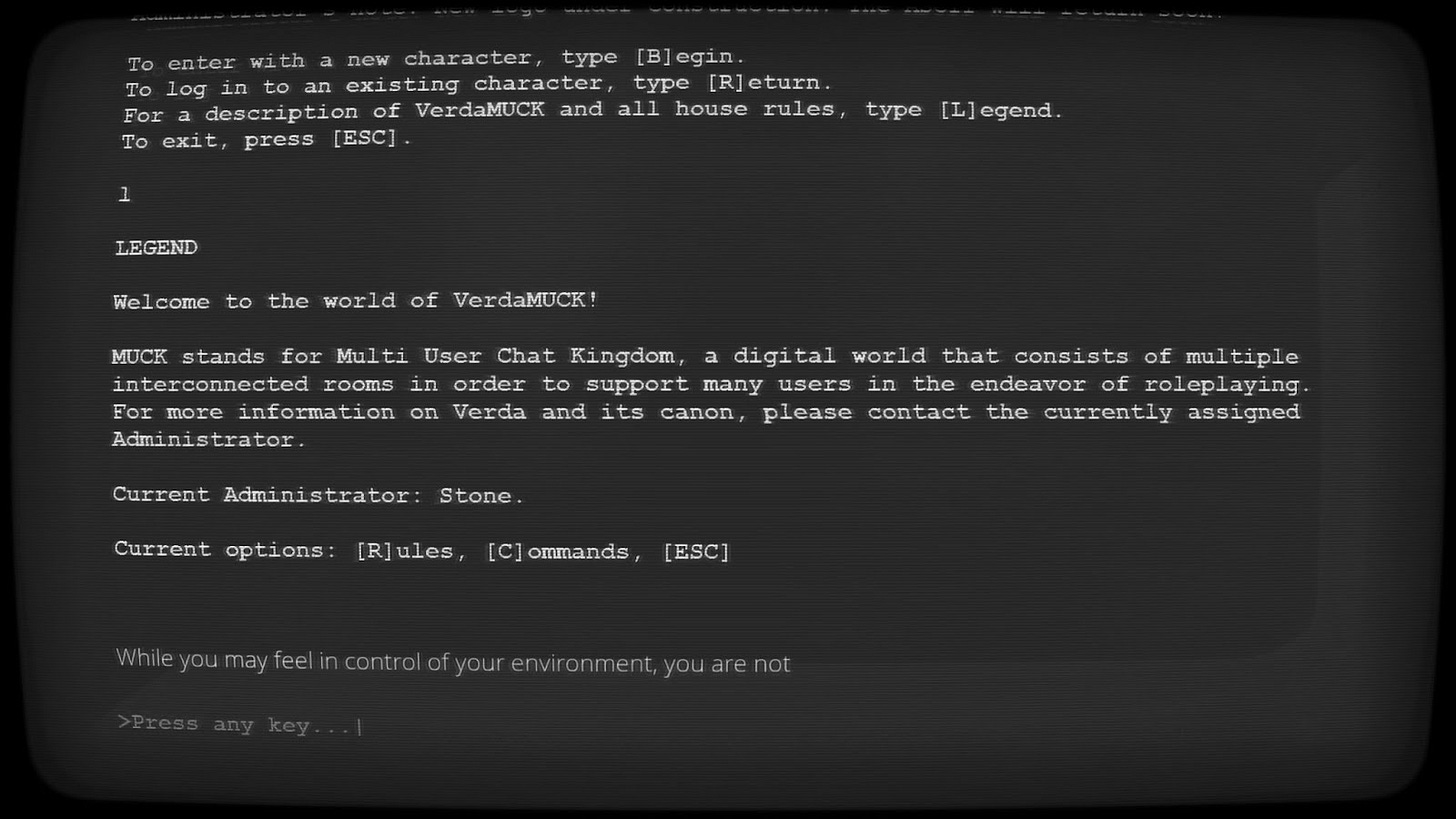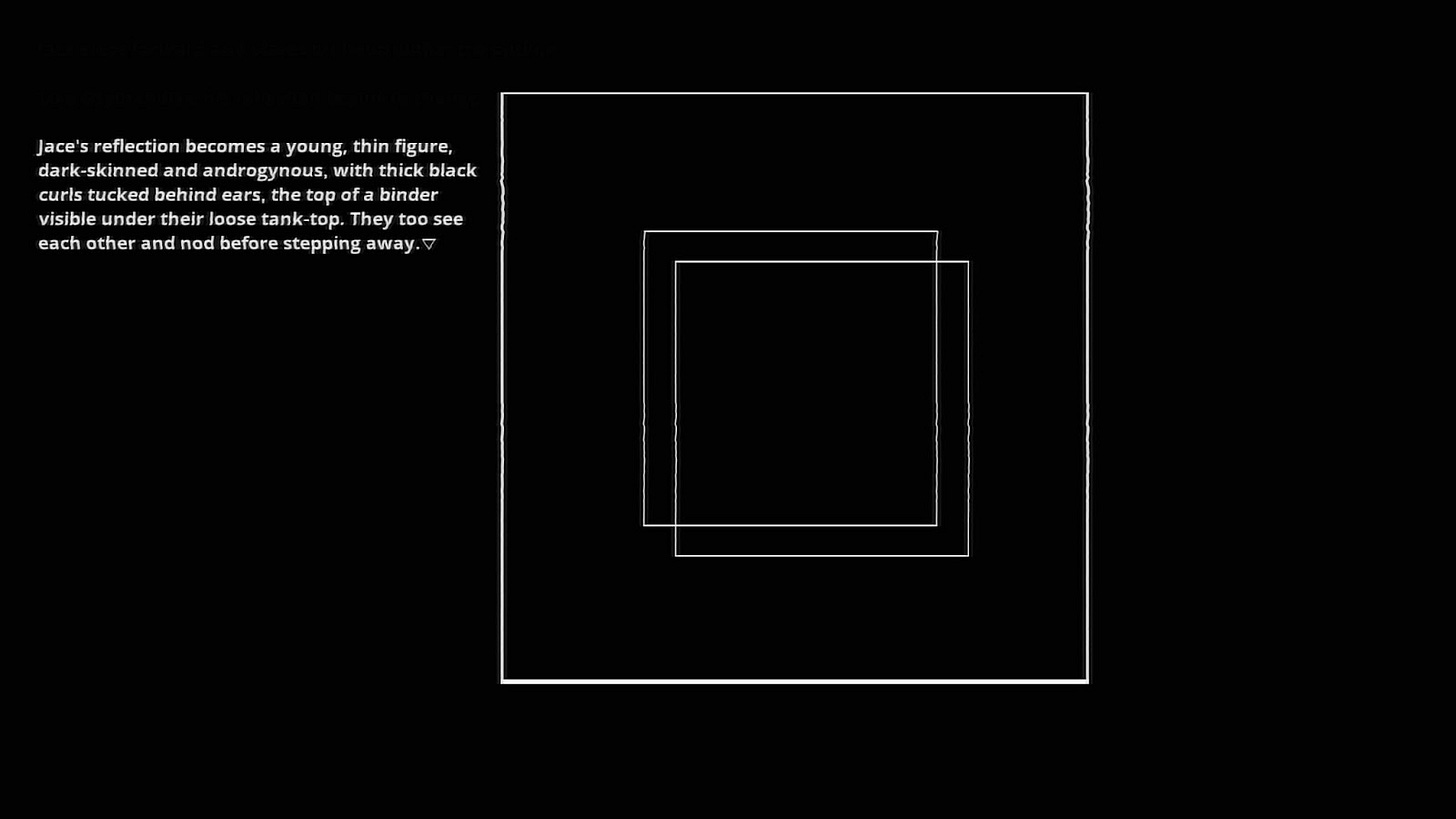The Narrative Voice of ESC (2018)
Hi! I'm Lena Raine. You might know me from the music for such games as Celeste or Minecraft, but I'm also a writer and game designer. I released my first game, ESC, for personal computers back in 2018. It didn't start as a game, though! I originally wrote ESC in 2012 as a writing exercise on perspective, narration, and identity. Due to its subject matter I had hopes of eventually making it interactive, but for a good 5 years or so it remained on my hard drive & unpublished. So once I finally got the drive to learn GameMaker and turn it into a kinetic novel, ESC's final form took shape.
I've always loved a good unreliable narrator. But not just the conniving tricky ones. What I love is an uncertain narrator. We see this a lot in visual novels and adventure games, whether it's the amnesiac recalling the truth of who they are over the course of the story, or the 3rd person objective narration of something like The Stanley Parable. What I wanted to play with in ESC, however, was a dual narrator that shifts over the course of the story and becomes a single perspective. A narrator with an unknown agenda, a purpose that the story wants to reveal to you. (And I should note that the following will contain spoilers for the entirety of ESC, so please feel free to play through before continuing!)
What I want to focus on is the development and build towards one single moment: a turn that redefines the narrative voice and leads the story to its climax.
When you begin ESC, there are two things happening: You are presented with the login screen of an online roleplaying server called VerdaMUCK, and in a separate font & presentation, are given additional context about what it is you're getting yourself into: "While you may feel in control of your environment, you are not." Because the presentation gives you the perspective role, the eyes into the world, there is a misconception that you are in control of the title character. But any input from you the player reveals that despite mechanically inputting commands, every line of text is predetermined. You have no real control here. This is a kinetic novel, but you're still in the driver seat. Text does not get entered until you type it in. But you cannot choose what is said. You cannot choose where to go.
Because ultimately this isn't a story about a human sitting in front of a computer, but an artificial intelligence being trained on human emotions, replaying events she has already seen.
(And of course, this is the fantasy of artificial intelligence. But the fantasy is wrapped up in concepts that have manifested over the past 12 years. It is not an idealized fantasy. We are still wrapping up the mined data of human expression and pretending that a computer can feel the same way. It is not a Good Future, and despite my best efforts there are still elements of hope in this creation of an Artificial Existence. Maybe that will manifest, eventually, in a way that isn't a horrible spectre of capitalism. For now it's a side effect of future-hypothesizing fiction that we all have to live with.)
A lot of the early narrative juice happens between your first-person MUCK adventures, where you're introduced to the Navigator, a character that is presented entirely in the form of logs that she beams out to you the player with a bit of a knowing wink. By completely changing the method of storytelling, from first-person text roleplay to narrative words in letter format, we set up the idea of a dual narrative voice. (The Navigator also has a static musical theme for every one of her posts. This will be important later.)
Eventually, the roleplay session intensifies when the terminal interface gives way to traditional Visual Novel Storytelling (text on a series of abstract backgrounds). The adventure has taken on a new form, and the player, who has always been a 2nd person narration, begins to write their words not in a chat prompt, but the novel format itself. Because it's always been a facade. And yet, there are two distinct voices happening: The text auto-entering itself, describing the world around you, and the text that you the lead character enter by yourself. It's always been like this. But before, there was an illusion of choice. Now, you are simply continuing the narration of this collaborative storytelling.
Throughout all of this, 'You' are always in question. Whether it's defining your character profile in the roleplaying environment, the Navigator describing herself to you the reader, or every character looking into a mirror and seeing the real person behind their roleplaying personas.
And then there's the turn. At a critical moment, the party reaches their destination, where the truth of everything will be revealed. It's as simple as turning the narration towards you, the player, with a new first person perspective added into the mix. A cheap trick, maybe, but one that comes paired with a music cue that transforms the Navigator's theme into a tense mask-off reveal. The journey leads you through the MUCK's necessitated perspective, into the narrative world's 2nd person storytelling, and now finally into the Navigator's first person takeover. It's a narrative voice that's been there all along, but the journey was necessary to get to this point. Your voice needed to be usurped by this 2nd character, and now it's wholly their story.
Beyond all of it, there is synthesis. Because this is a story about a developing intelligence, we learn that every perspective is a part of the whole. And it is exactly that process of bringing the narrative voice together into a single perspective that the story has been leading to. What begins as many perspectives with their own presentation becomes a single one, reflecting the main character as they wake into the real world. (Again, with a theme reflecting that: Existence, a piano rendition of the Navigator's theme).
The first draft didn't have the epilogue in there. I didn't know exactly where it was going. But the process of writing, and revising, and finding the ways to enhance this moment in an interactive format all came together to give ESC an endpoint 6 years after it started. It's moments like this that I think are unique in interactive media, and ones I keep trying to work towards in future designs.
Game Design Bounty: Honestly I just want more games like Vagrant Story to exist. There's a huge PS1 aesthetic revival going around, but not many really aim for that specific brand of pixel textures and small, claustrophobic spaces. There's an intimacy there, between the dark fantastical world and the hyperspecific systems that barely make sense and require constant experimentation and failure to work out. I love a world in diorama, and the synthesis-generated sound design to bring it to life. Please let me make one of these?? That's my aim for Game 3 after ANOTHEREAL. Maybe.
Take the reader survey!











